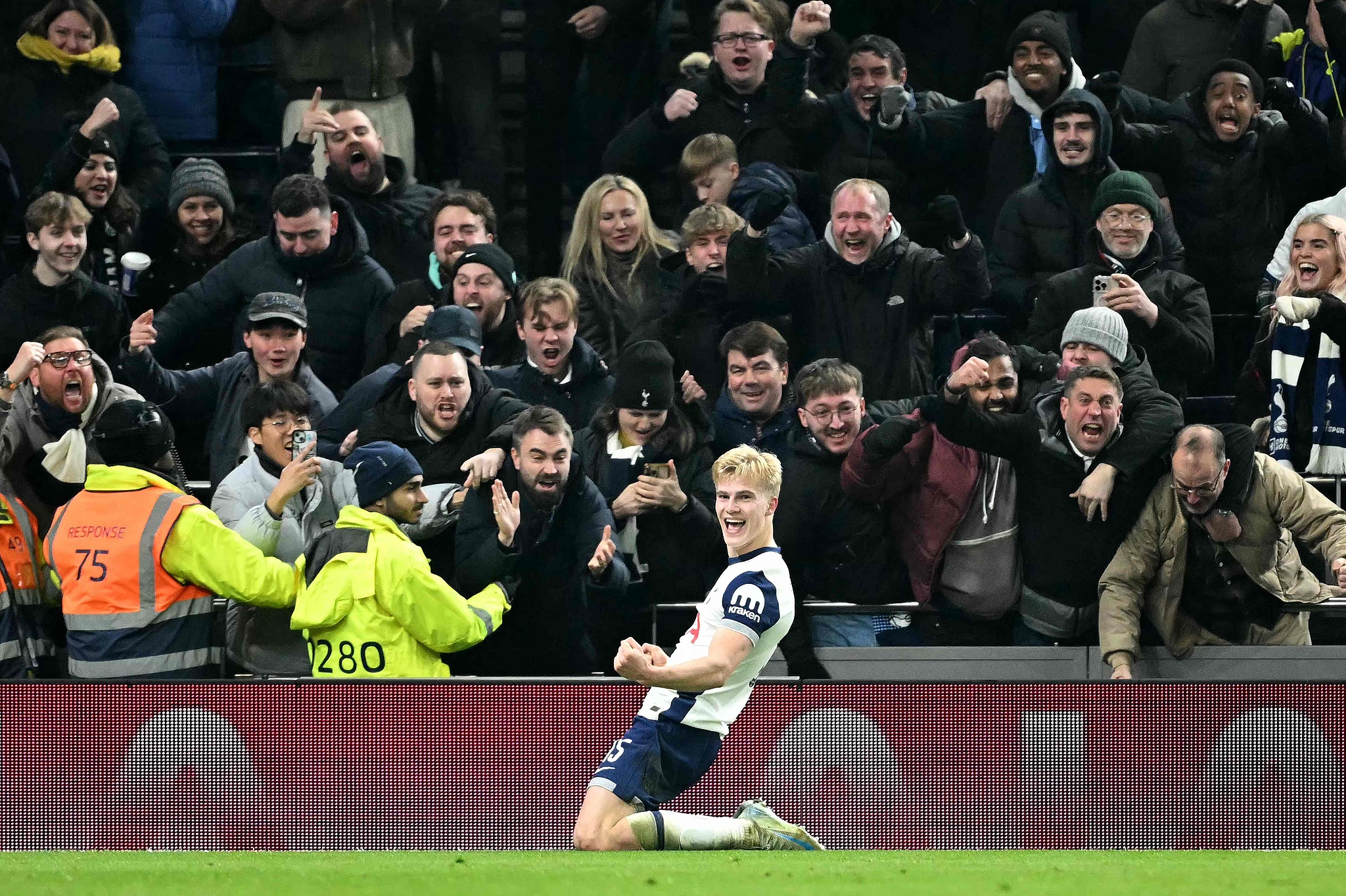The Spurs of Destiny: Uncovering the Rich History and Success of Tottenham Hotspur
In the world of football, few clubs have captivated the hearts of fans quite like Tottenham Hotspur. From their humble beginnings in the early 20th century to their current status as one of the top-tier teams in England, the Spurs have experienced their fair share of triumphs and setbacks. With a rich history that spans over 135 years, this article will delve into the fascinating story of Tottenham Hotspur, exploring their early days, notable achievements, and the factors that have contributed to their enduring success.
Tottenham Hotspur, one of the most iconic football clubs in England, has a history that is as complex as it is intriguing. Founded in 1882 as Hotspur Football Club, the team was later renamed Tottenham Hotspur in 1884. The club's early years were marked by financial struggles and inconsistencies, but it was the arrival of Arthur Rowe in 1958 that marked the beginning of a new era for the team. Rowe's innovative tactics and leadership style transformed Tottenham into a force to be reckoned with, leading them to the First Division title in 1960-61 and the FA Cup in 1961.
The Early Years: From Humble Beginnings to Financial Struggles
Tottenham Hotspur's early years were characterized by financial struggles and inconsistencies. The club's founders, Enfield Football Club, struggled to establish themselves in the footballing landscape, often facing financial difficulties and poor performance on the pitch. In 1882, the club was forced to merge with the nearby Hotspur Football Club, resulting in the formation of Tottenham Hotspur.
The early years of the club were marked by a series of promotions and relegations, with the team struggling to establish themselves in the top tier. However, it was the arrival of manager Arthur Rowe in 1958 that marked a turning point for the club. Rowe's innovative tactics and leadership style transformed Tottenham into a force to be reckoned with, leading them to the First Division title in 1960-61 and the FA Cup in 1961.
Key Players of the Early Years
• Glenn Lockhart: A midfielder who played for the club from 1901 to 1906, Lockhart was a key player in Tottenham's early years.
• Jack Lambert: A forward who played for the club from 1904 to 1914, Lambert was a prolific goal-scorer and helped Tottenham to promotion to the First Division in 1919.
• Dave Whelan: A defender who played for the club from 1923 to 1929, Whelan was a stalwart of the Tottenham defense and played a key role in the team's success in the early 20th century.
The Post-War Era: Tottenham's Rise to Prominence
The post-war era marked a significant turning point for Tottenham Hotspur. With the arrival of manager Arthur Rowe in 1958, the club began to experience a period of rapid growth and success. Rowe's innovative tactics and leadership style transformed Tottenham into a force to be reckoned with, leading them to the First Division title in 1960-61 and the FA Cup in 1961.
Tottenham's success during this period was built on a strong squad, led by players such as Bobby Smith, Dave Mackay, and Bill Nicholson. Nicholson, who took over as manager in 1961, would go on to become one of the most successful managers in Tottenham's history, leading the team to several major trophies, including the European Cup Winners' Cup in 1963.
Key Players of the Post-War Era
• Bobby Smith: A striker who played for the club from 1958 to 1965, Smith was a prolific goal-scorer and helped Tottenham to their First Division title in 1960-61.
• Dave Mackay: A midfielder who played for the club from 1959 to 1968, Mackay was a key player in Tottenham's success during the post-war era.
• Bill Nicholson: A manager who led the team from 1961 to 1974, Nicholson is widely regarded as one of the greatest managers in Tottenham's history.
The European Era: Tottenham's European Success
Tottenham Hotspur's European success was a major factor in the club's growth and popularity during the 1960s and 1970s. Under the leadership of manager Bill Nicholson, the team qualified for the European Cup in 1962, marking the club's first major European tournament.
Tottenham's European success was built on a strong squad, led by players such as Danny Blanchflower, Gordon Banks, and Dave Mackay. The team's 1963 European Cup Winners' Cup victory was a major achievement, and cemented Tottenham's status as one of the top-tier teams in Europe.
Key Players of the European Era
• Danny Blanchflower: A midfielder who played for the club from 1956 to 1972, Blanchflower was a key player in Tottenham's European success during the 1960s.
• Gordon Banks: A goalkeeper who played for the club from 1967 to 1974, Banks was a crucial member of Tottenham's European squad.
• Dave Mackay: A midfielder who played for the club from 1959 to 1968, Mackay was a key player in Tottenham's European success during the 1960s.
The Modern Era: Tottenham's Contemporary Success
In recent years, Tottenham Hotspur has experienced a period of significant growth and success. Under the leadership of manager Mauricio Pochettino, the team has consistently finished in the top six of the Premier League, earning a spot in the Champions League.
Tottenham's success during this period has been built on a strong squad, led by players such as Harry
Meg Turney
Girl Meets Farm Cancelled
Breckie Hill
Article Recommendations
- Skyes In 2024
- Constance Meester
- Bobbi Althoffd
- Karen Velez
- I Want Water
- Whatiseaseoesunny Hostin Have
- Dominic Monaghan
- Alisha Newton
- Kim Mathers
- Drewcott Wife Cancer



